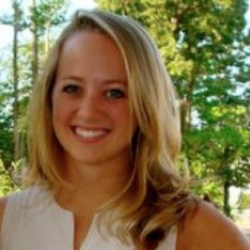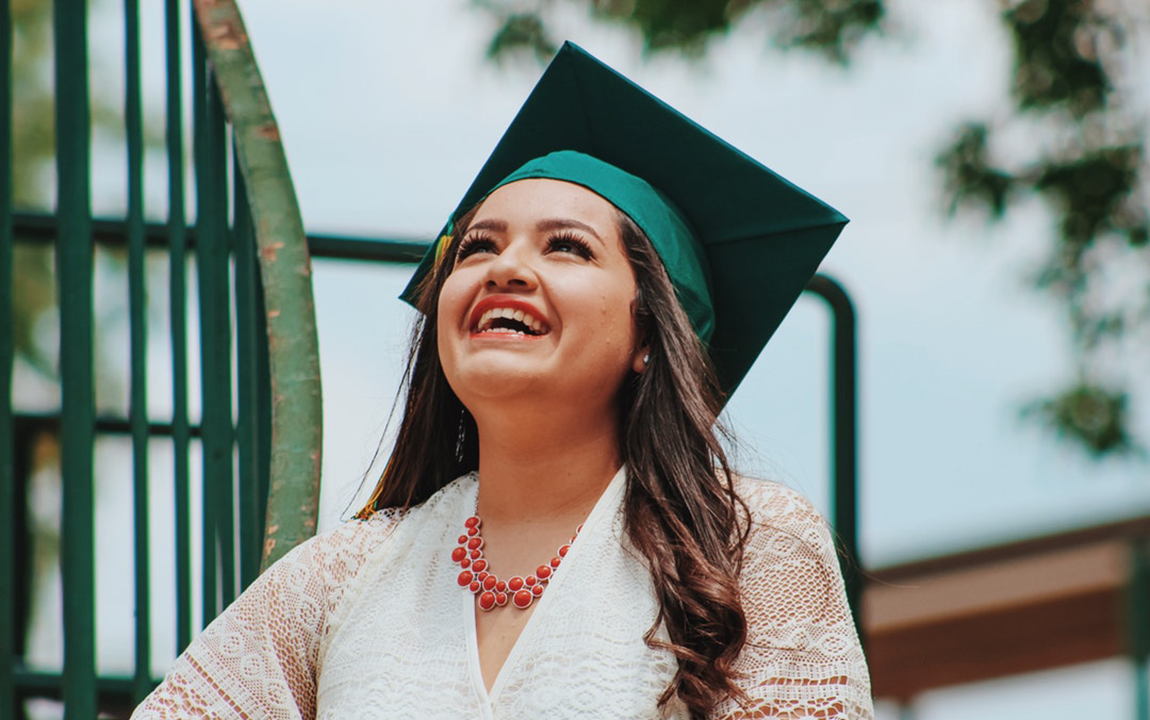
Over the past three years, our school division has begun the journey of implementing Project Based Learning in our secondary schools. Poquoson City Public School’s work is focused on preparing students to be college, career and life ready, in alignment with Virginia’s Profile of a Graduate. Our work also seeks to engage students with our community through service and to develop responsible citizens. In 2016, Poquoson was awarded a $500,000 grant from DoDEA (Department of Defense Education Activity) to implement PBL at our middle and high schools. A primary focus of this grant is to engage with and support our military-connected students and families. An example of a project that exemplifies our commitment to this work is Poquoson’s Veterans Project.
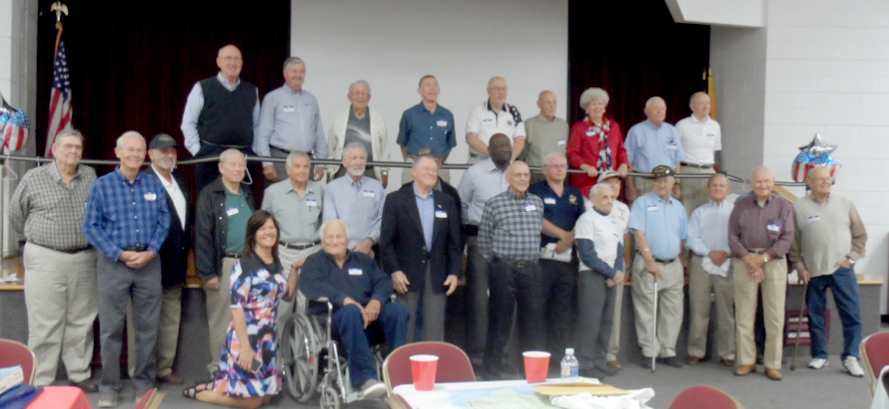
Through a PBL unit in U.S. History class during the 2017-2018, under the guidance of teacher Becky Morrison, students documented the stories of 35 local veterans through writing and video-based products. This year, the project has expanded, and 70 teenagers at Poquoson High School are paired with 50 local veterans. The resulting work has been placed in the Friends of National World War II Memorial and in the Poquoson Museum. As a result of the project, students have come away with a better understanding of various wars and their impacts, gaining a deeper experience than learning from a textbook or a typical classroom environment.
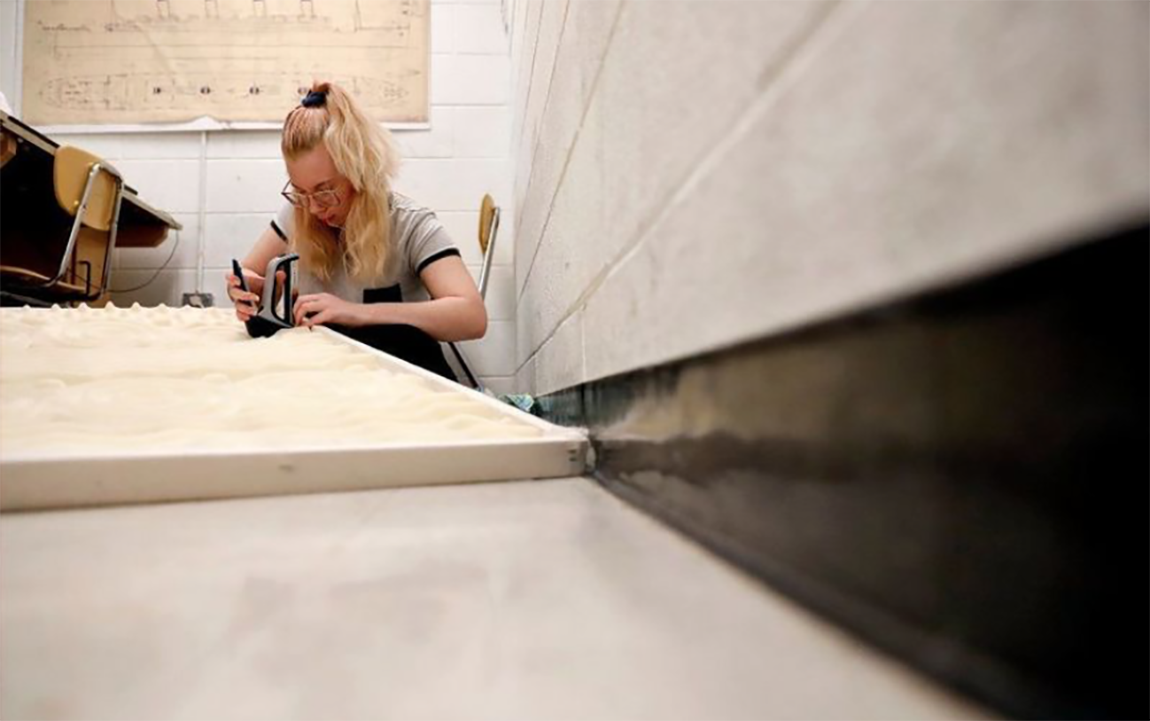
Another project that exemplifies our goals for student learning in Poquoson is the Acoustics Project, in which our high school students in Ellen Fiscella’s class engage with a real-world problem in our elementary school. As a former engineer, Ms. Fiscella brought her knowledge and expertise to her high school classroom in a manner that has made the content both meaningful and relevant to her students. Her students are currently working to resolve an acoustics issue that has been plaguing our elementary school.
Completed in 2008, this school includes innovative and economic design elements; however, some of these elements have contributed to poor acoustics in the general meeting space. Ms. Fiscella’s students are working to resolve the acoustical issues through PBL. They began by reviewing blueprints and touring the space to become familiar with the layout and to experience the acoustical challenges first hand. They then discussed various solutions and tested these ideas by developing small-scale foam core and wooden models.
The students will send their final design solution to their peers at the New Horizons Regional Education Center, who will fabricate the finished product. Furthermore, Poquoson High School art students will paint murals on the finished products which will be installed at the elementary school this summer. The students’ hard work will result in a space that the Poquoson community can more easily access, utilize, and enjoy. Students shared that their work has been “more meaningful” than other classes, because of the real-life implications and connections.
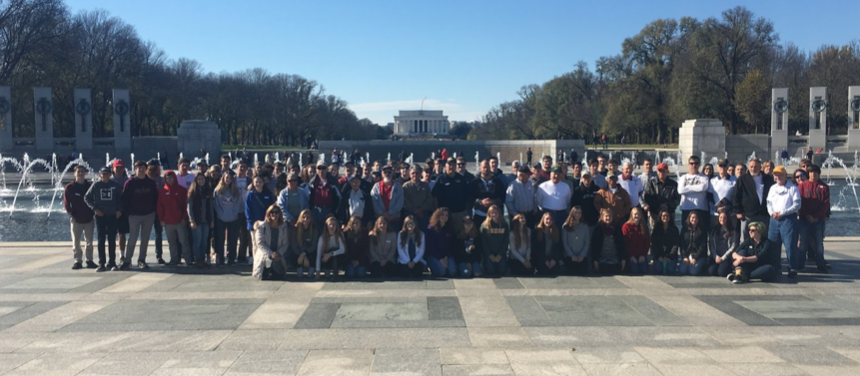
Lessons Learned
While we are very proud of the progress that our school division has made with Project Based Learning, it is important to note two things: 1) it has taken several key steps to get us to this point; and 2) there is still a lot more work to do. As we embarked on our PBL journey, we needed to figure out our WHY.
One way we demonstrated this need was through the “Ideal Graduate” activity brought to us by our PBLWorks National Faculty members and systemic coach. In having teachers reflect on what skills we want our students to possess upon graduation, teachers were able to recognize that content knowledge, while important, played a small role in the skills that students need to be successful in their post-secondary goals. Furthermore, we partnered with CTECS to develop a workplace readiness assessment that our 8th and 11th grade students take each year. This data underscored an important discrepancy: While our students were achieving high scores on various tests, our baseline group of 11th graders demonstrated 59% proficiency in the area of teamwork (for example). This helped demonstrate the need for PBL to our teachers if we really want to realize our goal of having students who are college, career, and life ready.
Furthermore, we developed a PBL Ambassador group at each school (middle and high school). These groups were comprised of representatives from each subject area who volunteered to be a part of the community. These representatives serve as the voice for their respective departments, and a great deal of our professional development is based on the needs that they reported. For example, in Year 1 of PBL implementation at the high school, the ambassadors were asked to share “roadblocks” to PBL success at that particular point in time. Teachers shared concerns about things like a lack of planning time and student absences, to name a view. Through a supportive administrative team, we immediately followed up on these concerns. We instituted a planning time for teachers to plan PBL with their departments, and our next faculty meeting was dedicated to sharing resources and teacher successes addressing the various roadblocks that teachers had shared. Leveraging teacher voice in this manner has truly helped our teachers access PBL, regardless of their respective entry point.
Along the way, we have been sure to celebrate successes. We developed a K-12 Instructional Showcase event and invited students, parents, and our community to come and see all of the great work that was taking place in our classrooms. We also make sure that we are reflective about our work and are constantly looking for ways to continue to grow and learn along our PBL journey – we know that there is more work to be done, but we are very proud of our teachers, staff, and students for the work they have done so far.

